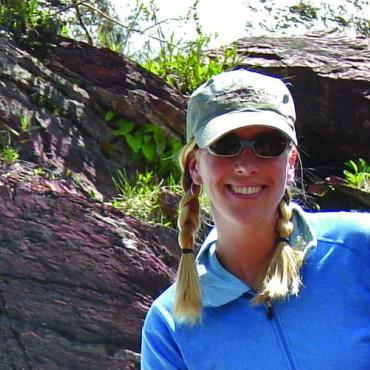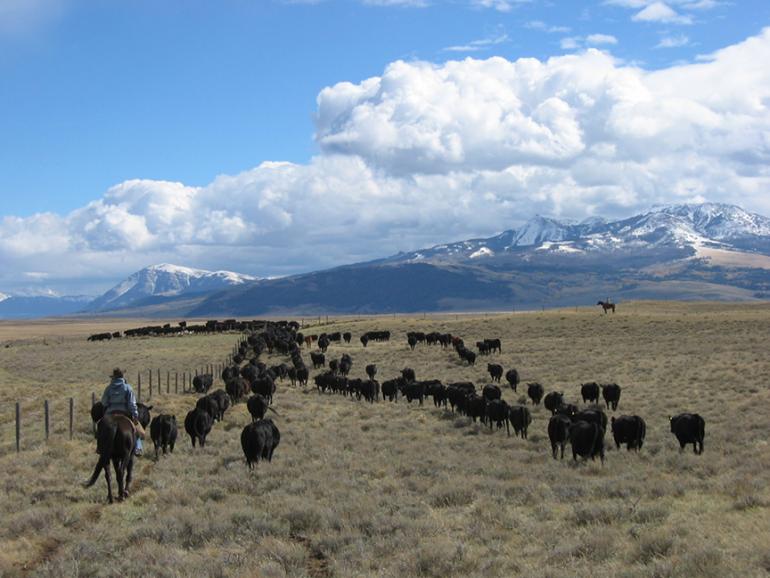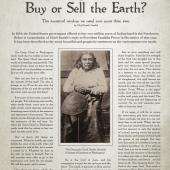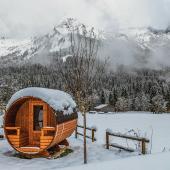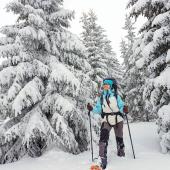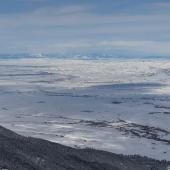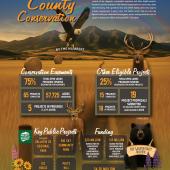Meat & Greet
All about the Western Sustainability Exchange.
For years, Barb Dennis ran a pet-grooming business to help pay for her husband Per’s ranching habit. The ranch, called Wolf Ridge Lamb and Wool Company, was a solid business, but it needed something to turn it into a full-fledged operation. The company needed connections, and those connections came from Western Sustainability Exchange (WSE).
The Dennis family started selling their Icelandic lamb at the WSE-run Livingston Farmers’ Market, and began to grow a solid customer base. The next step was building relationships with local restaurants through WSE’s Farm-to-Restaurant program. These days, the lamb business is booming—Barb has sold the pet-grooming operation and concentrates all her time and energy on raising gourmet-quality, 100% grass-fed lamb, using both sustainable and economically viable land-management practices.
What is WSE?
Executive Director Lill Erickson describes WSE—which celebrates its 20-year anniversary this season—as “a connecting force that brings together different elements of the food system with an eye to the future.” WSE was founded in 1994 on the principles of preserving the abundance of the Northern Rockies, including its open spaces, wildlife habitats, water resources, rural communities, and agricultural heritage. The organization has aided farmers and ranchers in implementing innovative and sustainable production strategies, developed value-added markets for these producers, and educated thousands of consumers about the long-term benefits of sustainable purchasing.
In practice, WSE has a slew of programs and campaigns to help fulfill their mission of preserving the abundance of the Northern Rockies. There isn’t room here to list everything WSE does, but here’s a sampling of their programs:
Local Foods Commerce Day. Held in Missoula, Bozeman, and Billings, this event allows producers, buyers, and distributers to get to know each other and their products. More than just another networking event, Local Foods Commerce Day makes selling and sourcing local sustainable products easier.
Farm-to-Restaurant Connection. This program links Montana-made products with restaurants in Billings, Bozeman, Livingston, Missoula, Pray, and Red Lodge. Farm-to-Restaurant promotes producers using agricultural practices that protect our natural resources and provides economic development by keeping dollars circulating within the local communities. The program facilitated $770,000 in sales for local producers in 2012.
Certified Producer Directory. This directory lists producers who meet WSE’s criteria for sustainable stewardship practices.
Livingston Farmers’ Market. Once a week throughout the summer, the Livingston Market draws a huge crowd at the Miles Park Bandshell.
Steer to Steak. Ranchers produce cattle. Consumers eat beef. Many steps must occur before a steer becomes a steak. The Steer to Steak Program helps ranchers who sell cattle rather than market-ready beef.
Sustainability Workshops. Each fall, WSE organizes a series of workshops centered on improving the triple bottom line for agriculture operations: people, planet, and profit.
Sustainability Certification. WSE uses their Sustainability Criteria to certify farmers, ranchers, processors, and food-service businesses for WSE programs. To be certified, producers must treat animals humanely, eliminate hormones and sub-therapeutic antibiotics, significantly reduce or eliminate chemicals used in production practices, and protect open space, wildlife habitat, and water quality.
Why Do We Need WSE?
In your average food system, the farmer or producer has no connection to the processor or buyer. WSE connects them and helps form relationships that result in better returns for the farmer, and more sustainable food and land for the rest of us. “We have the unusual role of creating economic incentives that reward farmers and producers for stewardship,” Erickson says. From the farm to the table, WSE is succeeding in their 20-year mission to help create a sustainable future for agriculture in southwest Montana.


